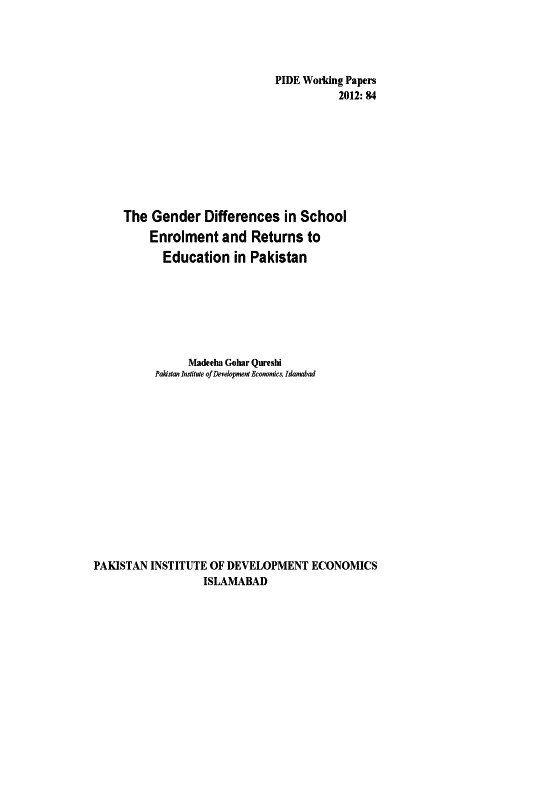The Gender Differences in School Enrolment and Returns to Education in Pakistan (PIDE Working Papers 2012: 84)
In this study attempt has been made to link the gender differences in parental resource allocation in demand for education at primary, secondary and tertiary level of education to gender differences in returns to education in these respective categories in Pakistan. The hypothesis was that if we find that labour market rewards male more than female then this may be able to give a plausible explanation of why households invest much less in daughter’s education. However our results suggest otherwise that there is under investment in females education at all levels even though returns to education are much higher for females than males. One possible explanation could be that even though private rate of return to time spent in school than in labour market is higher for a female compared to male but the part of return that goes to parents are much lower for daughters than sons in Pakistan due to dependence of parents on their son for old age support. The key factor from policy point of view that can reduce such discriminatory attitude towards female enrolment in a household are found to be education of parents especially mother’s education. Both father’s and mother’s education are found to have significant positive impact on education of both sons and daughters. However mother’s education compared to father has much more impact in terms of magnitude at all levels of education and especially the role is more pronounced for daughters.




